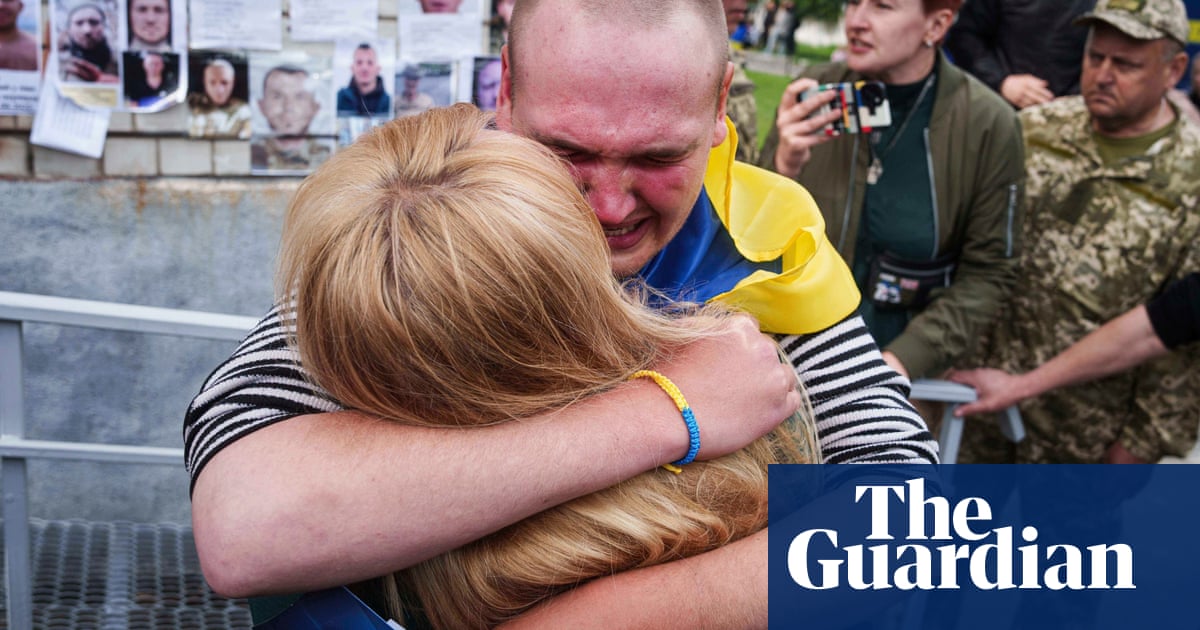Vladimir Putin told US counterpart Donald Trump on Saturday that Moscow was ready to hold a fresh round of peace talks with Kyiv after 22 June,once the sides complete exchanging prisoners and soldiers’ bodies.Putin and Trump held a 50-minute phone call on Saturday to discuss the escalating situation in the Middle East and Ukraine peace talks, Putin aide Yuri Ushakov said. Trump posted on Truth Social to say Putin had called “to very nicely wish me a Happy Birthday” on the day he turned 79, but that “more importantly” the two discussed the Iran-Israel crisis: “He feels, as do I, this war in Israel-Iran should end, to which I explained, his war should also end,” Trump said, referring to the Russia-Ukraine conflict. Putin and Trump held a call for the fifth time since the Republican took office, in a stark pivot from the approach of his predecessor Joe Biden’s administration. Trump hinted at follow-up discussions on the war in Ukraine in the coming week.
Ukraine’s leader Volodymyr Zelenskyy meanwhile did not mention whether Ukraine would agree to the next round of talks,only saying that “the exchanges will be completed and the parties will discuss the next step.”Zelenskyy urged the United States to “shift tone” in its dialogue with Russia, saying it was “too warm” and would not help to end the fighting. He said he hoped that the escalation between Israel and Iran would not result in a drop in military aid to Kyiv, according to remarks published on Saturday: “We would like to see aid to Ukraine not decrease because of this,” he said. “Last time, this was a factor that slowed down aid to Ukraine.” The recent escalation sparked fears Washington might relocate resources at its expense, to beef up the defence of its close ally Israel which unleashed a large-scale attack on Iran Friday.
A sharp rise in global oil prices following Israeli strikes on Iran will benefit Russia and bolster its military capabilities in the war in Ukraine,Zelenskyy said on Friday in comments that were under embargo until Saturday afternoon.Speaking to journalists in Kyiv, Zelenskyy said the surge in oil prices threatened Ukraine’s position on the battlefield, especially because western allies have not enforcedeffective price capson Russian oil exports. “The strikes led to a sharp increase in the price of oil, which is negative for us,” Zelenskyy said. “The Russians are getting stronger due to greater income from oil exports.”
Earlier on Saturday, Ukraine and Russia swapped prisoners in the fourth such exchange this week,part of a large-scale plan to bring back 1,000 wounded prisoners from each side and return the bodies ofdead soldiers. The prisoner agreement was the only visible result oftwo recent rounds of talksin Istanbul. Photos published by Zelenskyy on Telegram showed men of various ages, draped in Ukrainian flags. Some were injured, others disembarked from buses and hugged those welcoming them, or were seen calling someone by phone, sometimes covering their faces or smiling. Moscow’s defence ministry released its own video showing men in uniforms holding Russian flags, clapping and chanting “Glory to Russia” and “hooray”, some raising their fists in the air. However, Russian state media reported that Moscow had not received any of its war dead back from Kyiv, echoing a statement Russia made on Friday, when it returned the bodies of 1,200 slain Ukrainian soldiers. Zelenskyy said he expected the prisoner swaps to continue until 20 or 21 June.
Zelenskyy said on Saturday that Ukrainian forces had recaptured Andriivka village in northeastern Sumy region. Zelenskyy also claimed “successful actions” near Pokrovsk,for months a focus of Russian attacksin their slow advance on the eastern front, and “strong results” near Kupiansk, an area in northeastern Ukraine that has come under heavy Russian pressure. Global news agencies including Reuters could not verify the battlefield reports. Since the start of the month, Russia has intensified its advances along the frontline, especially in the north-eastern Ukrainian region of Sumy, where it seeks to establish a “buffer zone”. Russia’s defence ministry said on Saturday that its forces had seized the village of Zelenyi Kut, southwest of Pokrovsk. Zelenskyy said Ukrainian troops had maintained defensive lines along more than 1,000 km of the frontline. He also dismissed Moscow’s claims that Russian troops had crossed into the central Ukrainian region of Dnipropetrovsk. Dnipropetrovsk borders three regions that are partially occupied by Russia – Donetsk, Kherson and Zaporizhzhia. Russia now controls about one-fifth of Ukrainian territory.
